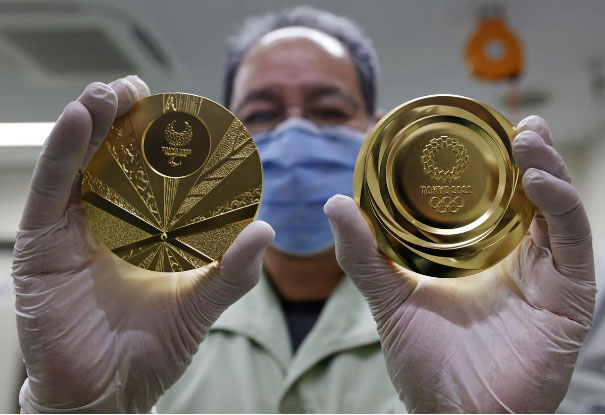TOKYO (Reuters) – Japanese Prime Minister Shinzo Abe ordered a two-week quarantine for visitors from China and South Korea yesterday and delayed a visit by Chinese President Xi Jinping originally planned for April in response to a widening coronavirus crisis.
Abe’s measures, announced in a briefing with reporters, came after weeks of criticism he was failing to tackle the outbreak head-on and coincided with the country’s biggest one-day increase in new infections.
The government also insisted the outbreak will not disrupt the Tokyo Olympics which begin in late July.
Public broadcaster NHK confirmed cases had risen to at least 1,056 nationwide by early Friday morning, 20 more than the previous day, with new infections reported across the country, including seven in Nagoya in central Japan and the first in the western prefecture of Shiga.
Twelve people have died from the disease in Japan, according to the health ministry.
Abe said it was “essential” to take “flexible protection measures” at ports and airports.
Under the new measures, most of which will start on March 9 and last until the end of the month, people arriving from China and South Korea will be quarantined for two weeks at designated sites.
The government will also suspend existing visas and limit arrivals from those countries to Tokyo’s Narita airport and Kansai, which serves Osaka in western Japan.
From March 7, the government will also bar entry to people who have been to areas with high infection rates in South Korea or Iran.
Visitors from areas affected by the new travel restrictions will also be asked not to use public transport.
Chief Cabinet Secretary Yoshihide Suga said Japan and China would arrange a better time for Xi to visit as both countries had agreed to prioritise the fight against coronavirus.
Earlier in the day, Abe’s Olympics minister, Seiko Hashimoto, said the 2020 Tokyo Games would go ahead as planned.
“Cancellation or delay of the Games would be unacceptable for the athletes,” she said.
She stirred controversy on Tuesday by saying Tokyo’s contract with the International Olympic Committee “could allow a postponement” up to the end of the year.
The Japanese Rugby Football Union has said it will halt next month’s Asia Sevens Invitational, which doubles as a test event for rugby sevens at the Tokyo Olympics.
Hashimoto told the Japanese parliament’s upper house yesterday that the final decision on holding the Games as planned rested with the IOC.
Organisers had already made provisions to cancel the Games in the event of a massive earthquake or other natural disaster, the Mainichi newspaper reported.
Tokyo 2020 organisers declined to comment on their contingency plans for natural disasters. IOC head Thomas Bach on Wednesday voiced confidence the Games would go ahead, saying organisers were receiving expert information from the World Health Organization and others and that the words “postponement” and “cancellation” had not been mentioned at the IOC’s executive board meeting.
Some Tokyo residents, however, think a halt to the Games is warranted.
“I think the Olympics should be cancelled in this case because it is a dangerous situation,” 77-year-old Yufumi Tamaki told Reuters yesterday. “I feel sorry for the athletes and the people who have prepared for the Games, but it is more important to save lives.”










